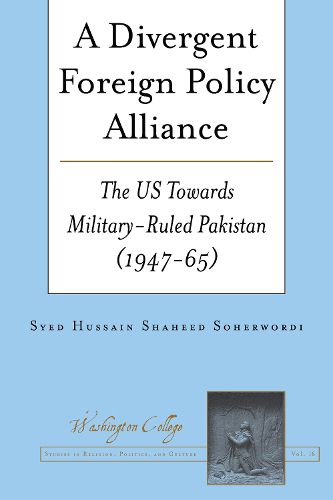Readings Newsletter
Become a Readings Member to make your shopping experience even easier.
Sign in or sign up for free!
You’re not far away from qualifying for FREE standard shipping within Australia
You’ve qualified for FREE standard shipping within Australia
The cart is loading…






This title is printed to order. This book may have been self-published. If so, we cannot guarantee the quality of the content. In the main most books will have gone through the editing process however some may not. We therefore suggest that you be aware of this before ordering this book. If in doubt check either the author or publisher’s details as we are unable to accept any returns unless they are faulty. Please contact us if you have any questions.
This book examines, through the use of archives and oral evidence, the role of the Pakistan Army in the context of Pakistan's foreign policy and domestic politics. Focusing on its independent relationship with three instruments of policy-making in the United States - State Department, White House and Pentagon - the theory argues that the relationship between the Army and these policy-making bodies arose from a synergistic commonality of interests during 1947-65. The Americans needed a country, on the periphery of the Soviet Union to contain Communism while the Pakistan needed US military support to check Indian regional military hegemonism in South Asia. This alliance was secured to the disadvantage of democratic political institutions of Pakistan. The Army, which became stronger as a result of US military and economic support, came progressively to dominate domestic politics. This led not only to weakened civilian governments in the period under examination but also, in 1958, to the military seizure of political control of the country itself. Religion, the foundation of the creation of the country, failed to keep the East and West wings of Pakistan united.
The book explores the influence of the martial-race theory and and reconstructs provincial politics that weakened the Federal Government and allowed the Army to usurp political power to a disproportionate degree. The complications arising in Indo-Pakistan relations as a consequence of an abrupt tilt of the US towards India after the Sino-Indian war in 1962 are also examined. This resulted in China-Pakistan friendship.
In conclusion, the book argues that the period under consideration saw a complete failure of the US policy of containing communism while at the same time avoiding war between its allies in the region, and that this had tragic consequences for the future of democracy in Pakistan.
$9.00 standard shipping within Australia
FREE standard shipping within Australia for orders over $100.00
Express & International shipping calculated at checkout
This title is printed to order. This book may have been self-published. If so, we cannot guarantee the quality of the content. In the main most books will have gone through the editing process however some may not. We therefore suggest that you be aware of this before ordering this book. If in doubt check either the author or publisher’s details as we are unable to accept any returns unless they are faulty. Please contact us if you have any questions.
This book examines, through the use of archives and oral evidence, the role of the Pakistan Army in the context of Pakistan's foreign policy and domestic politics. Focusing on its independent relationship with three instruments of policy-making in the United States - State Department, White House and Pentagon - the theory argues that the relationship between the Army and these policy-making bodies arose from a synergistic commonality of interests during 1947-65. The Americans needed a country, on the periphery of the Soviet Union to contain Communism while the Pakistan needed US military support to check Indian regional military hegemonism in South Asia. This alliance was secured to the disadvantage of democratic political institutions of Pakistan. The Army, which became stronger as a result of US military and economic support, came progressively to dominate domestic politics. This led not only to weakened civilian governments in the period under examination but also, in 1958, to the military seizure of political control of the country itself. Religion, the foundation of the creation of the country, failed to keep the East and West wings of Pakistan united.
The book explores the influence of the martial-race theory and and reconstructs provincial politics that weakened the Federal Government and allowed the Army to usurp political power to a disproportionate degree. The complications arising in Indo-Pakistan relations as a consequence of an abrupt tilt of the US towards India after the Sino-Indian war in 1962 are also examined. This resulted in China-Pakistan friendship.
In conclusion, the book argues that the period under consideration saw a complete failure of the US policy of containing communism while at the same time avoiding war between its allies in the region, and that this had tragic consequences for the future of democracy in Pakistan.